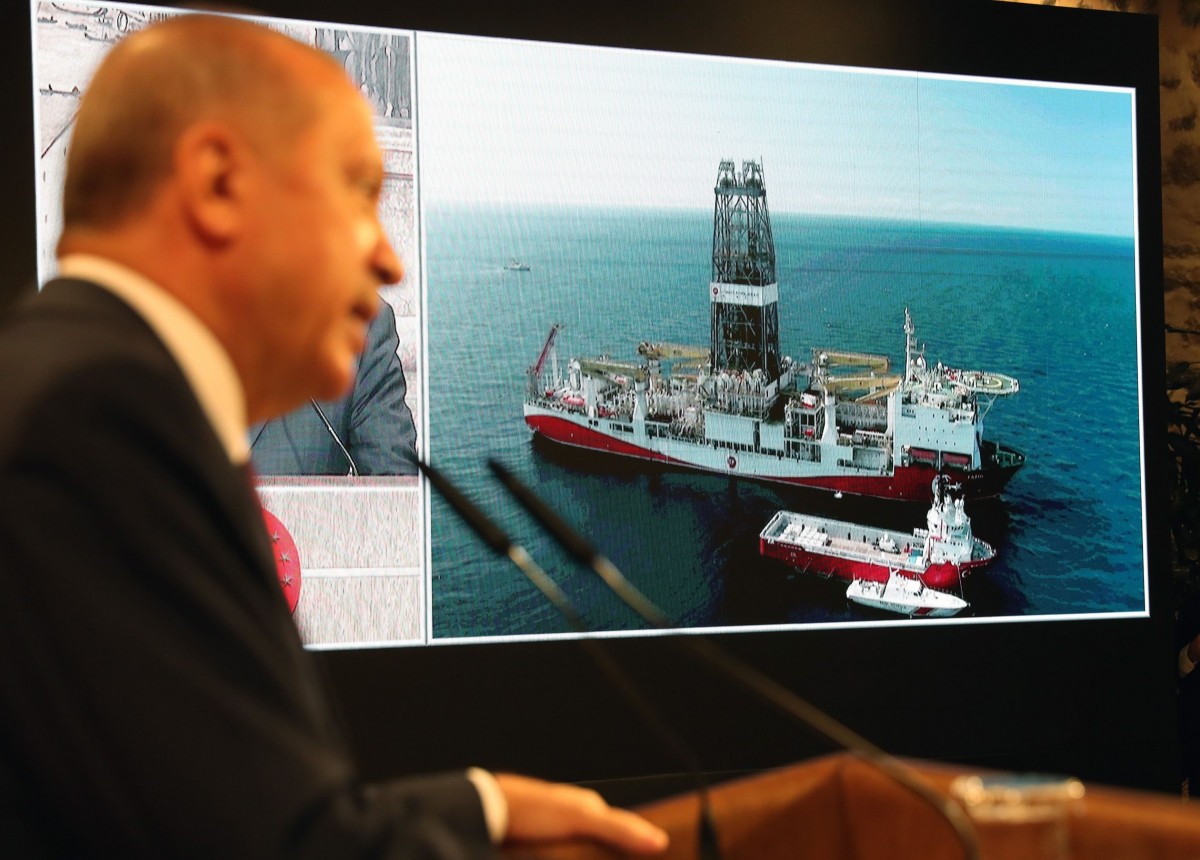Turkey’s Gas Discovery Could Reduce Energy Dependency
The discovery of a natural gas reserve in the Black Sea could meet Turkey’s gas needs for six-to-seven years which should help assuage the country's chronic current account deficit pressures and reduce energy dependency.

Source: Shutterstock Turkish president Erdogan announces biggest natural gas discovery in history, Istanbul, Turkey - 21 Aug 2020
Turkey has discovered the country's largest-ever natural gas reserve in the Black Sea located in the northwest off the Turkish coast, close to the exclusive economic borders of Romania and Bulgaria. Initial estimates suggest the reserves are around 320 billion cubic metres.
According to President Recep Tayyip Erdogan, data shows the strong possibility of more natural gas finds in the Black Sea, while energy minister Fatih Donmez believes seismic data indicates two more layers of similar reservoir structures which hint at the possibility of more reserves.
Turkey plans to begin using the gas reserves by 2023 - an ambitious deadline set by the President given some estimates that it could take four-to-six years, while the energy minister envisages the economic value of the discovery to be around US$65 bn after project, transportation, extraction and infrastructure costs are taken into account.
Good news for external imbalances
The news is particularly significant given Turkey’s external imbalances, which have occasionally left the country exposed.
Excluding the current account figure in 2019, (the first surplus since the 2001 financial crisis), Turkey has posted an average of 4.6% of GDP annual current account deficit over the last 10 years. Given low savings, this shows the structural nature of dependency on external funding and high dependence on energy imports, along with low value-added exports and a higher share of imported goods used for production.
Breakdown & evolution of current account deficit
Source: CBT, ING
Current account balance & credit growth
Source: CBT, BRSA, ING
Credit growth has increasingly become one of the basic determinants of current account deficits since the global financial crisis as strong credit expansion tends to boost imports. This, in turn, causes the external deficit to widen and external funding needs to rise.
In the first half of 2020, the impact of the pandemic hasn't only been on economic activity but also on balance of payments with a widening trade deficit and a worsening capital flow outlook. Accordingly, the deteriorating trend, the 12-month rolling current account balance that started in the last quarter of 2019 has gained pace in recent months and continued in June with US$-11.2 billion versus US$+8.7 billion at end-2019.
The higher trade deficit is on the back of the sharp fall in exports given severe lockdown measures in major export markets, while credit stimulus has prevented imports from falling sharply. On the services side, we have seen a significant impact from tourism income on the back of a collapse in tourist arrivals. We also see the impact of the continuing widening in the gold trade deficit, while the drop in the energy bill has limited the extent of deterioration in external balances.
Latest data shows the decline in tourism and ongoing global mobility restrictions remain a drag, though exports rebounded in June.
Energy imports and natural gas in perspective
Turkey is highly reliant on imports to meet its energy needs, given the country’s external dependency on primary energy demand was 74.1% in 2016.
Any reduction in Turkey's energy import bill, which stood at US$41.7 bn last year (around 5.5% of GDP) and further narrowing this year to US$34.8 bn as of June on a 12-month rolling basis with favourable oil prices, would be a welcome development.
The share of energy in imports, on the other hand, is now at 16.8%, significantly down from 25% in 2012.
External Dependency of Primary Energy Demand (%)
Source: ETKB, EİGM, ING
Energy Imports
Source: TurkStat, ING
As for energy imports, Turkey has imported 45-50 bn cubic meters per annum since 2011 (except 55 bn cubic meters in 2017) and pays around US$12-13 bn annually.
It has recently been diversifying its energy sources exhibited by the falling share of Russian gas in total imports from 51.9% in 2017 to 33.6% last year. Accordingly, Turkey directs more of its imports from pipeline gas to liquefied natural gas (LNG) - the share of which has hit 28.1% - a continuous increase from 2013.
It has been purchasing more US and Qatari LNG, both with shares of 23.2% and 46.7%, respectively in LNG imports.
Country Breakdown of Natural Gas Imports
(*Others represent the countries of imported spot LNG)
Source: Energy Market Regulatory Authority, ING
Type of gas imports (% share)
Source: Energy Market Regulatory Authority, ING
Implications of the discovery
The discovery will help lessen Turkey's energy dependence once the gas is commercially extracted, but other effects include:
- According to local media, experts believe when operational some 5 to 10 billion cubic meters of gas can be produced annually, leading to a 10-to-20% contribution to current gas consumption helping to reduce the energy bill and support external balances.
- Turkish officials believe this discovery will give the country an advantageous position in future negotiations over gas imports from Russia, Iran and the US. Pipeline gas purchase contracts from the first two will expire in the coming few years.
- This should increase Turkey's energy security.
Even though this is the country's largest-ever natural gas discovery, expectations were building up for much higher reserves. As a result, the market response so far has been weak given the reserves can only meet domestic demand for some six to seven years.
However, the government is quite optimistic about more discoveries and any such news should help alleviate Turkey’s external deficit pressure and reduce energy dependency.
Disclaimer: This publication has been prepared by ING solely for information purposes irrespective of a particular user's means, financial situation or investment objectives. The information ...
more


